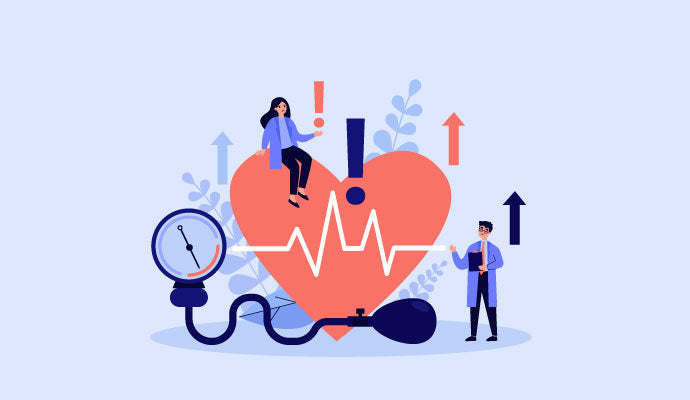The Relationship Between Blood Pressure and Heart Healt

Blood pressure and heart health are closely intertwined, with high blood pressure (hypertension) being a significant risk factor for various heart conditions. Understanding how blood pressure impacts heart health and its representation on an electrocardiogram (ECG) is crucial for maintaining overall cardiovascular well-being.
The Impact of Blood Pressure on Heart Health
-
Hypertension and Heart Disease: High blood pressure can lead to heart disease by causing the heart to work harder than normal, leading to thickened or stiffened heart muscle. This can result in various conditions such as coronary artery disease, heart attack, heart failure, and more.
-
Hypertension and Stroke: Uncontrolled high blood pressure can also lead to stroke by damaging and weakening the brain's blood vessels, causing them to narrow, rupture, or leak. This can result in a blocked or ruptured blood vessel in the brain, leading to a stroke.
-
Other Complications: Chronic high blood pressure can also affect other parts of the body, including the kidneys, eyes, and blood vessels, leading to complications like kidney disease, vision loss, and peripheral artery disease.
High Blood Pressure on an Electrocardiogram (ECG)
-
Effects on ECG: High blood pressure can manifest on an ECG in several ways. It can cause left ventricular hypertrophy (LVH), which is an enlargement and thickening of the walls of the heart's main pumping chamber. LVH can be detected on an ECG by certain patterns, such as increased voltage in the QRS complex.
-
Arrhythmias: High blood pressure can also lead to arrhythmias, which are abnormal heart rhythms. These arrhythmias can sometimes be detected on an ECG, showing irregularities in the heart's electrical activity.
-
Ischemic Changes: Chronic hypertension can contribute to the development of coronary artery disease, which can lead to reduced blood flow to the heart muscle (ischemia). Ischemic changes can be detected on an ECG as ST-segment depression or T-wave inversion, indicating potential heart muscle damage.
Maintaining healthy blood pressure levels is crucial for heart health. Regular monitoring of blood pressure, along with lifestyle modifications and, if necessary, medication, can help prevent or manage hypertension and reduce the risk of associated heart complications.
Brand Recommendation: PulseNexa's Wristwatch Health Watch offers non-invasive blood pressure monitoring, providing accurate readings without the need for traditional blood pressure cuffs. Its advanced technology ensures reliable results, making it a valuable tool for monitoring and managing blood pressure and overall heart health.
Remember, it's always important to consult with healthcare professionals for personalized advice and treatment recommendations.
